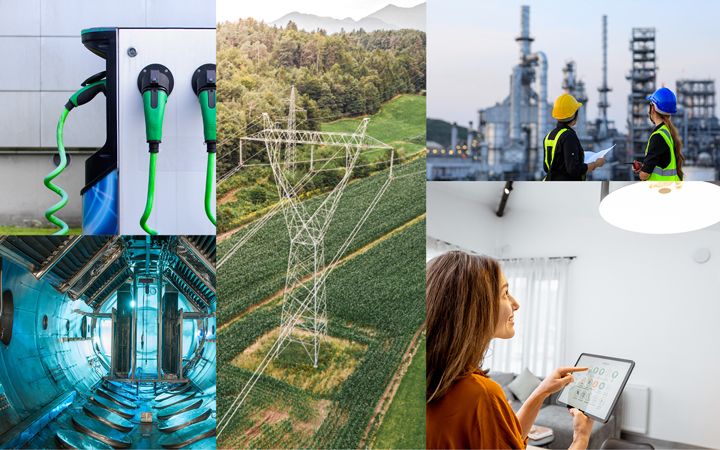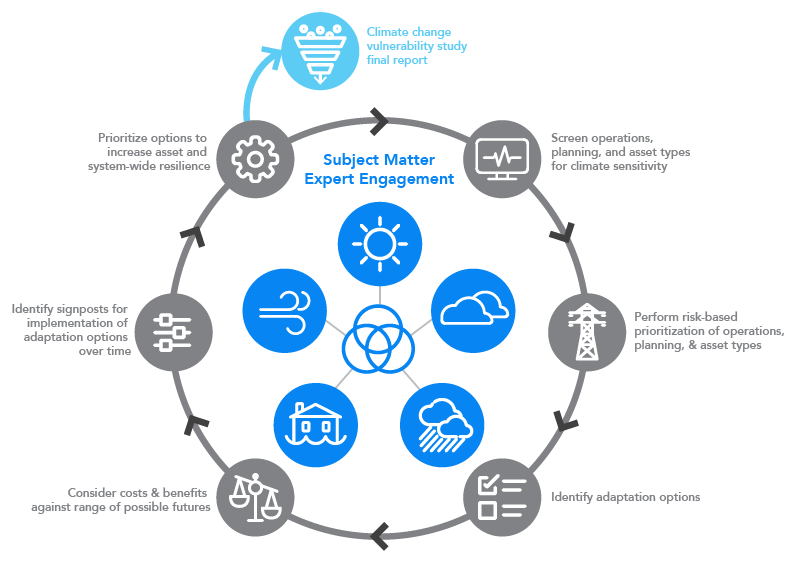
Con Edison’s resiliency journey
How we supported the development of an industry-leading approach to help Consolidated Edison of New York pursue more effective resilience
Utilities today recognize the pressing need to address infrastructure and resilience goals. We partnered with Con Edison to produce a vulnerability study designed to help the utility withstand environmental changes, absorb and recover from outage-inducing events, and advance to a better state.
Challenge

In the last decade, utilities have experienced more extreme weather events than in the past two decades combined. Along with bottom-line impacts, utilities are also concerned about communities throughout their service areas, investors, and regulators.
Con Edison, one of the largest investor-owned energy companies in the U.S., began their resiliency journey in 2013 after Superstorm Sandy. Aiming to take a proactive approach to enhance resilience in the face of changing climate conditions, they sought a partner to help identify implementation opportunities and support the justification of necessary costs.
Solution
We led a vulnerability study to arm Con Edison with the best available science to protect current and future investments. This study assessed climate risks, reviewed operational measures, stress-tested scenarios, and developed strategies to address utility and customer resilience.
We helped Con Edison translate climate science into actionable information that made sense within the utility’s specific context. While Con Edison already uses a range of measures to build resilience to weather events, together we recommended additional climate adaptation measures based on the forward-looking climate science analyzed in the study. These include integrating temperature projections into measures such as load forecasting and reliability modeling; prioritizing the retrofitting to submersible equipment in an expanded future floodplain; monitoring local changes in climate and urban heat island impacts; and increasing planning for resilient supply chains.
Stakeholder engagement, including with dozens of subject matter experts across Con Edison and an external working group, played a central role in the study. We helped facilitate expert interviews and workshops, synthesizing knowledge about potential climate impacts from across the business to provide results that are specific to the Con Edison system and processes.

Results
Con Edison is developing a plan to address future climate risks which may require investments between $1.8 billion and $5.2 billion by 2050 in order to protect their electric, gas, and steam delivery systems and customers.
The detailed vulnerability study provided Con Edison with a new understanding of risks to address. The results supported the development of an implementation plan that integrates resilience into Con Edison’s day-to-day planning, engineering, operations, and preparedness. This plan will allow Con Edison to focus on and enhance resiliency while meeting the responsibilities to their customers, the environment, and an ever-changing energy market.